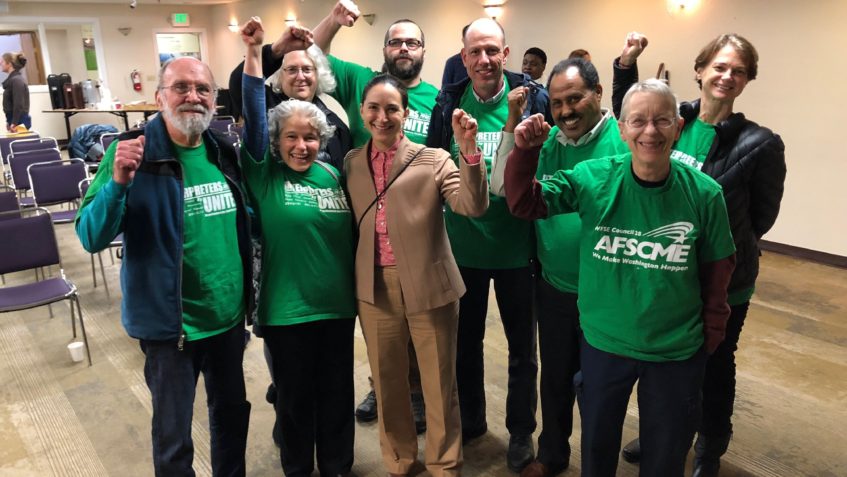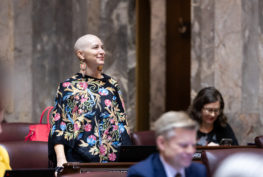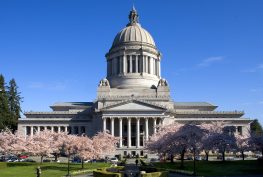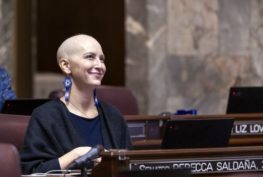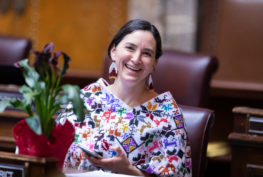
The last several days have been a whirlwind! I can’t believe that it was just over a week ago that we hosted our town hall. We had a great turnout, and folks asked robust and thoughtful questions about carbon, the social safety net, gun responsibility and public safety, economic development, taxes, environment, and civil rights.

Sen. Saldaña with constituent AFSCME representatives at the 37th Legislative District town hall meeting on Saturday, Feb. 17, 2018.
I love seeing constituents in Olympia who visit to advocate for their priorities. Last week residents of the 37th turned out in large numbers for the annual African-American Advocacy Day, Catholic, Jewish, and Interfaith Lobby Day, and Senior Lobby Day. Residents advocated on issues ranging from repealing I-200, to health care, to safe schools, to addressing homelessness.

Sen. Saldaña with constituents from the 37th Legislative District in her Olympia office on Thursday, Feb. 22, 2018.
This week our three supplemental budgets were released and passed. Washington state budgets provide funding on a two-year (biennial) cycle.
Supplemental budgets are passed in even years and allow the Legislature to make mid-course corrections on the two-year budget. It gives the state the opportunity to make critical new investments that keep families safe, provide high-quality teachers, and address other emergent needs like mental health care.
2018 supplemental budgets
Operating budget
This budget helps fund the day-to-day operations of state government such as schools and universities, state parks, teacher salaries and other state services and programs.
On Friday, the Senate passed the 2018 supplemental operating budget plan — a budget that will fully fund education and provide adequate support for those in our society who need mental health treatment.
This budget makes targeted investments in key areas, including:
- Education: Brings the state into compliance with its constitutional obligation to amply fund our public schools. Includes an additional $1 billion to fully fund teacher and staff salaries as directed by the state Supreme Court.
- Mental health: Invests nearly $300 million more over the next four years for state hospitals, mental health treatment and addressing the opioid crisis.
Capital budget
On Friday, the Senate also passed $334.7 million in new construction funding for Washington communities. The budget invests in public schools, higher education, behavioral health and local community infrastructure.
The proposal would provide an additional $66.2 million for K-12 school construction statewide. Of that sum, funding would be allocated as follows:
- $51.3 million to the School Construction Assistance Program
- $9 million for distressed schools
- $6 million in rural school modernization grants
Transportation budget
As vice chair of the Senate Transportation Committee, I was part of a team that negotiated the budget that passed on Friday. The transportation budget sees an increase of $826 million over the enacted 2017-19 transportation budget. Much of the increase is a result of re-appropriated funds to continue Connecting Washington projects passed in 2015 that include investments in ferries, environmental protections, and the Washington State Patrol.
Stay in touch!
Thank you for contacting us on what matters to you. Your participation is making a difference and helping to improve our communities! Follow my official Facebook page for updates and remember to stay in touch by calling or emailing my office.
